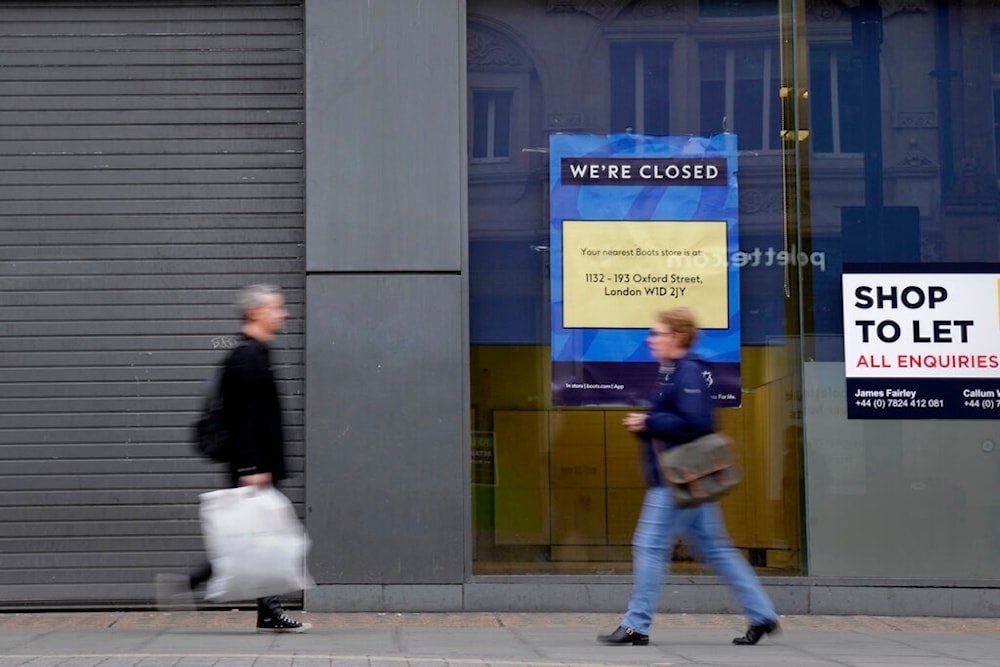UK economy falls into recession despite Sunak's regulation vow
The UK's economy has seen several blows over the past two years, but following the second half of 2023, the economy is witnessing an official recession.
-

Pedestrians pass a closed retail unit on Oxford Street in London, Friday, November 11, 2022 (AP)
In the second half of 2023, the UK's economy slipped into a recession, constituting a low blow for Prime Minister Rishi Sunak, who had constantly sold the nation the promise of amplifying growth if he gets reelected.
During the last quarter of 2023, the UK's gross domestic product reached an unexpected and worse-than-predicted 0.3% contraction, compared to the forecasted 0.1% economists calculated in a poll by Reuters, as well as the 0.1% shrinkage witnessed in the previous quarter. This signifies the lowest drop in the UK since Covid-19 hit the global economy.
Reportedly, this is because of the manufacturing, construction, and wholesale sectors.
GDP per person in the UK, on the other hand, has not seen any growth since 2022, indicating the longest stagnance in over four decades.
Inflation, growth, and business
At the same time, the country's inflation index stood at 4%, which was lower than the forecasted sum. However, the Bank of England remains anxious because of the constant growth in wages, in the face of tax cuts.
Another indicator of the economy's instability and abruptness is that Reuters' economic analysis poll showed a 0.2% decrease in economic output for December, but in reality, it totaled only 0.1%. This comes after a 0.2% growth in November.
Moreover, the UK's currency has been growing weaker relative to the euro and dollar, while investors began calling for interest cuts to be imposed by the Bank of England and businesses requested more governmental funds to sustain their activities, which are points to be discussed in an expected national business plan due March 6 of this year.
Britain's Finance Minister Jeremy Hunt reiterated the country's plan to cut taxes on work and businesses to avoid an economic plummet. Hunt's reliability, however, is questionable as the minister proposed cutting public spending budgets to fund the elections if needed.
The Red Sea crisis piles on
In January, Hunt said that disruptions to shipping routes in the Red Sea could potentially affect the British economy by leading to an increase in prices.
In response to inquiries about the possibility of increased prices in Britain due to the attacks carried out by the Yemeni Armed Forces, Hunt said, as quoted by BBC, "It could have consequences, and we will closely monitor the situation."
In another context, Hunter said, “It is inevitable GDP will be subdued whilst interest rates are doing their job to bring down inflation. But the big reductions in business taxation announced in the Autumn Statement mean the economy is now well placed to start growing again."
This is happening as British citizens started their new year with a 5% hike in energy bills, British power regulator Ofgem announced on January 1.
Read more: Brexit cost penalty worth £29 bln on UK productivity: Bank Of England

 3 Min Read
3 Min Read








